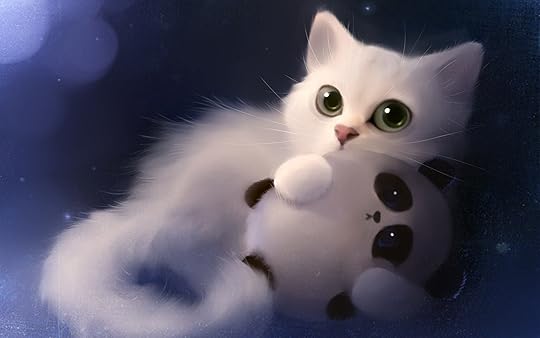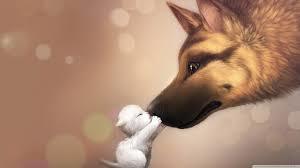Where English Class Has Failed Us

Good afternoon, everyone! This is a topic that I’ve noticed taking center stage in recent discussions, on why people of a certain age seem not to know particular things that previous generations had little trouble with. It’s also a subject that I find important to keep in mind, as a writer, and a reader. So, after collecting my thoughts, I’m here to compose a post.
And because we all need our daily dose of cute…you’re welcome.
Problem #1: People don’t understand what literary analysis is or how to use it properly when reading a book. This includes everything from not grasping how metaphor and allegory properly work, to not knowing what unreliable narrators and crossover genres are (or that these things even exist).
Goodreads is littered with reviews that simply state, “This book is so great, read it!” or “I didn’t like this book at all, it was crap.” You have to be able to explain WHY you did or didn’t like something. A reader’s final opinion of a title is frequently based not on content or premise, but largely on whether they meshed with the author’s style, the execution of the plot, and how they related to the characters.
For example, I think the premise and plot of The Book Thief is so intriguing, and important to the conversation we must keep having about World War II. However, I really struggled to finish the book — because the way it was written I found very off-putting. Having Death as essentially an unreliable narrator, because he couldn’t empathize with so much of what Liesel and Rudy were going through, or truly get inside their heads (as opposed to having a more deep POV), created several points where the story just dragged for me. And there were many times when I was confused as to whether Death was simply musing, or if the author was describing something that had definitely happened to the characters.
But, do I think The Book Thief was bad? No, I actually don’t — I’d still recommend it to others. It just wasn’t for me — and I can concretely identify why.
This is a skill that will serve educated people well throughout their lives — not just when you have to write that term paper for high school English class.

Problem #2: No one knows proper punctuation, or thinks to learn spelling themselves. Spell check will take care of that, right? WRONG. Spell check only offers suggestions — it is still up to us to find a dictionary (physical copy or online), and know how to sound out words, and check the definition, so that we’re confident this is the word we’re after.
How can we even contemplate becoming a professional writer if we don’t truly know the difference between your and you’re, or there-their-they’re? How do we even start something like a blog without having proper control of these linguistic elements? How in the world will our resumes and business proposals and last will seem to others if we can’t write and speak well? If we want people to take us seriously, indicating that we care whether we appear to have taken English lessons from a tamed wolf on the edge of our backyard should be a concern.
Problem #3: Lots of people don’t comprehend the meaning of the genres. They get that fiction is not about something that definitely happened; they get that non-fiction is real events, places, and people. They know a book is not a magazine. They know books marketed to children use more pictures and shorter words and are easier for young minds to follow. This is, sadly, in a lot of ways, it.
Historical fiction is fiction written about a particular time period after that time period has passed. A novel written about 1849 in 1854 is contemporary fiction — yes, it truly is. Classics are books that have been beloved by readers for a long stretch of consistent years, and are considered by the literary world to set the standard for a genre. For example, The Hitchhiker’s Guide to the Galaxy and Lord of the Rings are classics in sci-fi and fantasy. So they aren’t Jane Eyre or Huckleberry Finn, it doesn’t matter.
Fantasy and dystopia are NOT the same thing. Sci-fi and steampunk are not the same. (And, yes, steampunk is totally a genre.)

Problem #4: Just because someone wrote it doesn’t make it true. The Da Vinci Code stands out to me as an obvious point of discussion on this. Whenever there’s a novel that takes a lot of history, a little speculation, and a dash of conspiracy theory and mixes it all together, this still does not mean the “solving” of the mystery is what actually happened. It’s still up to us to do our own research, and find out how much artistic liberty was taken, before we start decrying something as damaging or harmful. Anyone who claimed Harry Potter was teaching kids witchcraft, for example, could’ve spent 5 minutes looking into the vast differences between neopagan worship and traditional legendary wizarding and realized this wasn’t the case.
The other point on this part that really irks me is when readers claim authors “shouldn’t take artistic liberty.” Tough. It’s our creative right, and quite frankly, not our fault if people can’t figure out to do their homework.

Problem #5: The quality of “literature” being published has distinctly gone downhill. In the past few years, I think I’ve found a major issue with 90% of the new releases I’ve read. Either there are pages and pages of meaningless, wandering descriptions and conversations that do nothing to advance the plot, or the characters don’t speak like real people, or the plot itself is rather unbelievable. And honestly, it feels that the standards for what could become new classics are really slipping.
I’m all for having plenty of fiction that’s more fun than anything else; not every single printed title has to be the next To Kill a Mockingbird or Oliver Twist. But when frustration and confusion reigns higher than enjoyment after reading, this is a big deal.

So, thanks for letting me whine for a while! What are your thoughts on all of this? Are you a writer or a reader who’s come across some of the same kerfuffles? Any notions on how we should go about trying to protect the literacy of the next generation??

Daley Downing's Blog
- Daley Downing's profile
- 36 followers



